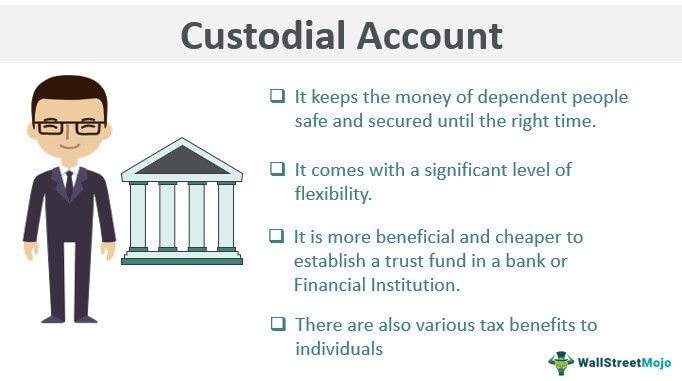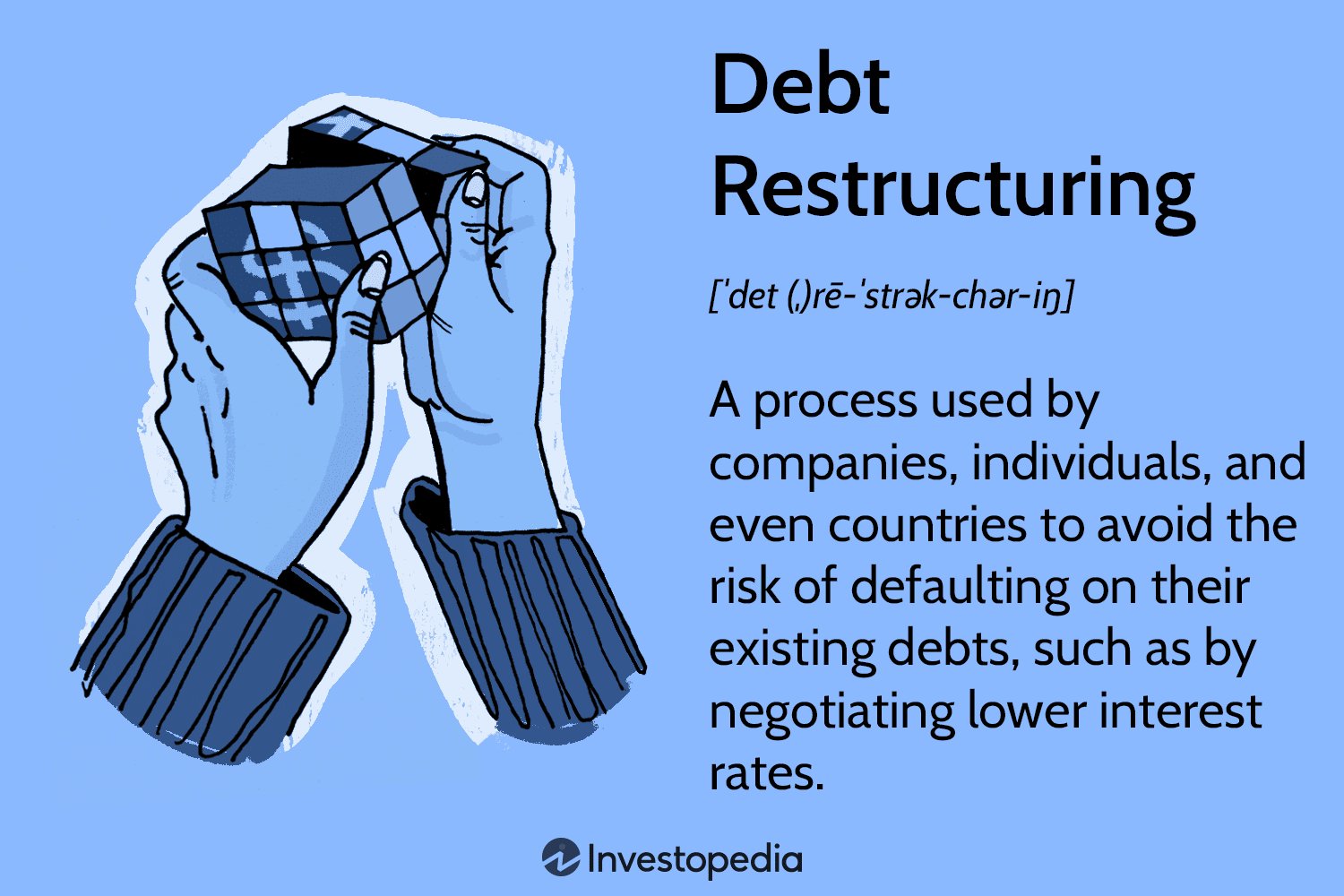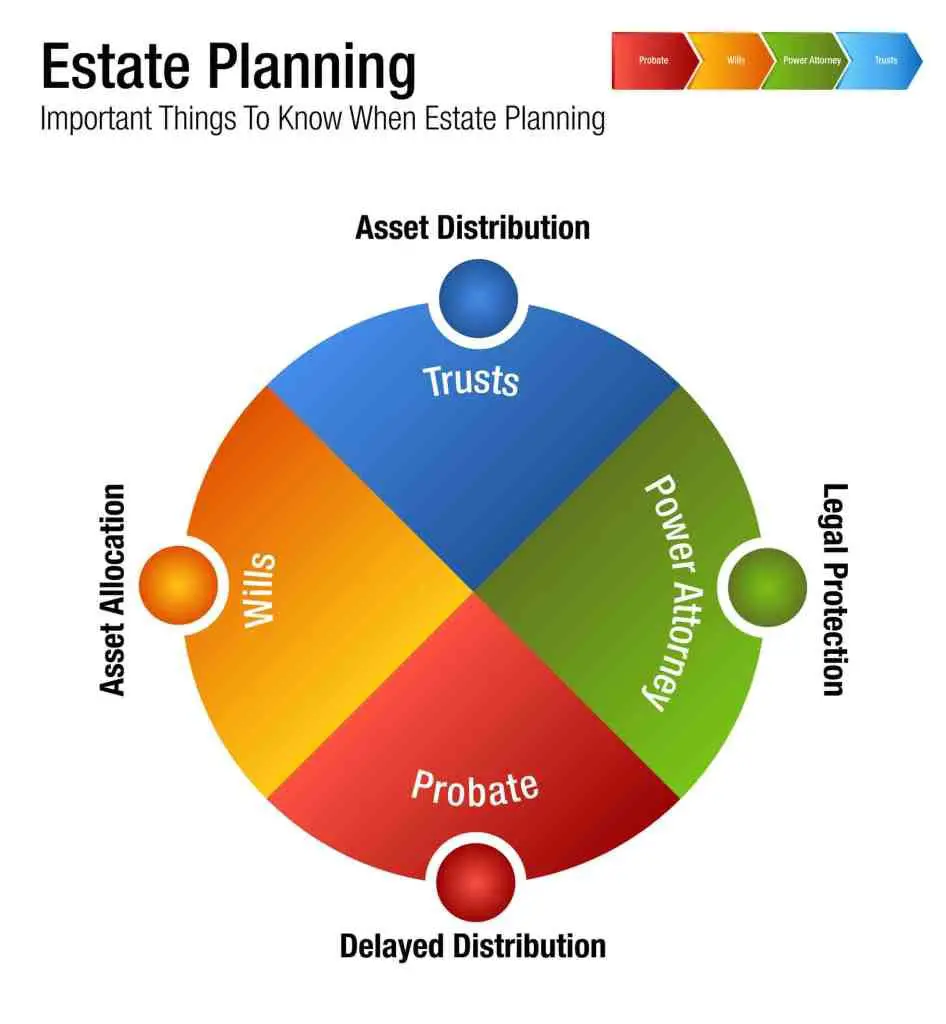Are you curious about custodial accounts and the benefits they offer? Well, you’ve come to the right place! A custodial account is a specialized financial account that allows a designated person, usually a parent or guardian, to manage and control assets on behalf of a minor. It’s a fantastic tool for teaching children about financial responsibility and instilling valuable money management skills from an early age. In this article, we will delve into what a custodial account entails and explore the numerous advantages it brings. So, let’s dive in and discover the ins and outs of custodial accounts and their benefits!
What is a Custodial Account and Its Benefits
A custodial account is a financial account that is created for the benefit of a minor and managed by an adult custodian. It allows parents, guardians, or designated individuals to hold and invest assets on behalf of a minor until they reach the age of majority, typically 18 or 21 years old, depending on the state or jurisdiction. Custodial accounts are versatile financial tools that can provide several benefits for both the minor and the custodian. In this article, we will explore the ins and outs of custodial accounts and highlight their advantages.
How Does a Custodial Account Work?
When setting up a custodial account, the custodian, who can be a parent, grandparent, guardian, or any responsible adult, opens the account on behalf of the minor. The account can be established at a bank, credit union, brokerage firm, or any financial institution that offers custodial services. The custodian manages the assets within the account and makes investment decisions until the minor reaches the age of majority.
Types of Custodial Accounts
Custodial accounts come in different forms, depending on the financial institution and the account’s purpose. The two most common types of custodial accounts are Uniform Gift to Minors Act (UGMA) accounts and Uniform Transfer to Minors Act (UTMA) accounts.
- UGMA accounts: UGMA accounts allow the custodian to transfer assets, such as cash, stocks, bonds, or real estate, to the minor. The account’s purpose is to provide a straightforward way to transfer assets to minors without creating a trust.
- UTMA accounts: UTMA accounts function similarly to UGMA accounts, with the key difference being that custodians can transfer any type of property to the minor, including physical assets like artwork or intellectual property.
The Benefits of Custodial Accounts
Custodial accounts offer several benefits that make them an attractive option for parents, guardians, and minors. Let’s explore these advantages in detail:
1. Tax Advantages
One of the significant benefits of custodial accounts is the potential for tax savings. The income generated by assets held in custodial accounts is generally taxed at the minor’s tax rate, which is often lower than the custodian’s tax rate. This can result in substantial tax savings for the family.
2. Financial Education
Custodial accounts provide an excellent opportunity for minors to learn about financial responsibility and investment management from an early age. As the custodian makes investment decisions on behalf of the minor, they can involve the child in the process, teaching them valuable lessons about saving, investing, and money management.
3. Long-Term Investing
Custodial accounts allow for long-term investing and potentially greater returns. Since the funds in the account are intended for the minor’s future, the custodian can invest in assets with a long time horizon, such as stocks or bonds. The extended investment horizon allows for compounding growth, potentially increasing the account’s value over time.
4. Transfer of Assets with Control
Custodial accounts provide a convenient way to transfer assets to minors while maintaining some control over how the funds are used. The custodian manages the account until the minor reaches the age of majority, ensuring that the assets are used responsibly or according to the custodian’s wishes.
5. Flexibility in Asset Types
Custodial accounts offer flexibility in the types of assets that can be held within the account. While traditional savings accounts are common, custodians can also invest in stocks, bonds, mutual funds, and other securities on behalf of the minor. This flexibility allows for a diversified investment portfolio and the potential for higher returns.
6. Estate Planning Tool
Custodial accounts can serve as a valuable tool for estate planning. By transferring assets to a custodial account, individuals can ensure a smooth transfer of wealth to the next generation while minimizing estate taxes. Additionally, custodial accounts are not subject to probate, simplifying the distribution process.
7. Financial Assistance for the Minor
Custodial accounts can provide financial assistance to the minor, especially when they reach the age of majority. Once the minor gains control of the account, they can use the funds for various purposes, such as education expenses, starting a business, or making a down payment on a home. The funds can offer a valuable head start in their adult life.
8. Simplified Record Keeping
Maintaining clear records of financial transactions and investments is crucial. Custodial accounts simplify record keeping, as all transactions related to the account are consolidated in one statement. This makes it easier for the custodian, the minor, and other interested parties to track the account’s growth and monitor investment performance.
Risks and Considerations
While custodial accounts offer numerous benefits, there are some risks and considerations to keep in mind:
- Loss of Control: Once the minor reaches the age of majority, they gain full control over the account and can use the funds as they see fit, even if it differs from the custodian’s intentions.
- Tax Implications: While custodial accounts provide tax advantages, it’s essential to consult with a tax professional to understand the specific tax implications based on your circumstances.
- Impact on Financial Aid: Assets held in a custodial account can affect a student’s eligibility for financial aid when applying for college. It’s important to consider how the account may impact the minor’s eligibility for various financial aid programs.
- Custodial Responsibility: As a custodian, you have a fiduciary duty to act in the minor’s best interest. It’s crucial to make prudent investment decisions and manage the account responsibly.
Custodial accounts provide a powerful financial tool for transferring assets to minors while enjoying various benefits. From tax advantages to long-term investing opportunities and financial education, custodial accounts can set minors on the path to financial success. However, it’s essential to carefully consider the risks and responsibilities associated with custodial accounts. Consulting with a financial advisor or tax professional can help ensure that custodial accounts align with your specific financial goals and circumstances.
Custodial Accounts, Explained.
Frequently Asked Questions
Frequently Asked Questions (FAQs)
What is a custodial account and how does it work?
A custodial account is a financial account that is established and managed by an adult on behalf of a minor. It allows the adult, called the custodian, to hold and manage assets for the minor until they reach a certain age, typically 18 or 21, depending on the state and the account type.
What are the benefits of a custodial account?
1. Introduction to Financial Responsibility:
A custodial account provides an opportunity for minors to learn about financial responsibility and money management from an early age.
2. Tax Advantages:
Custodial accounts may offer tax advantages, such as potentially lower tax rates for the minor, which can be beneficial when it comes to long-term investments.
3. Investment Options:
Custodial accounts typically offer a wide range of investment options, allowing the custodian to invest on behalf of the minor, potentially leading to higher returns.
4. College Savings:
Custodial accounts can also be used as a vehicle for saving for a child’s education, providing a dedicated fund for college expenses.
Who can open a custodial account?
Any adult, such as a parent or legal guardian, can open a custodial account on behalf of a minor.
Is there a maximum contribution limit for custodial accounts?
Yes, custodial accounts have contribution limits determined by the Internal Revenue Service (IRS). The annual gift tax exclusion limit sets the maximum amount that can be contributed without incurring gift taxes.
When does the minor gain control over the custodial account?
The minor gains control over the custodial account when they reach the age of majority, which is typically 18 or 21, depending on the state and account type.
Can the funds in a custodial account be used for any purpose?
Yes, the funds in a custodial account can be used for any purpose that benefits the minor. However, it must be in their best interest and should not be misused by the custodian.
What happens to the funds in a custodial account if the minor does not use them?
If the funds in a custodial account are not used by the minor, ownership of the account can transfer to the minor upon reaching the age of majority, allowing them to continue managing the funds.
Are custodial accounts only used for cash investments?
No, custodial accounts can hold a variety of assets, including cash, stocks, bonds, mutual funds, and other types of investments.
Final Thoughts
A custodial account is a financial account that is established for the benefit of a minor, managed by a custodian until the minor reaches adulthood. One of the key benefits of a custodial account is that it allows parents or guardians to save and invest on behalf of their child. This can help in building a strong financial foundation for the child’s future, whether it’s for education expenses or long-term financial goals. Furthermore, custodial accounts often offer tax advantages and flexibility in investment options, making them a valuable tool for families seeking to grow their wealth over time. Whether you’re planning for your child’s future or looking to teach them about financial responsibility, a custodial account provides a secure and effective way to do so.



